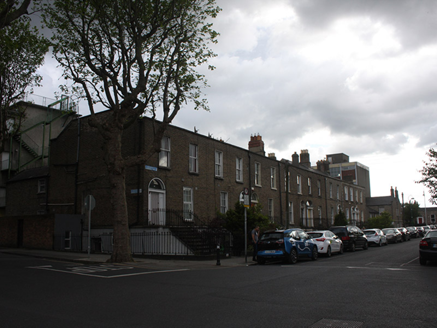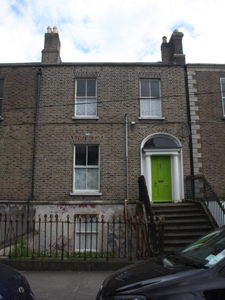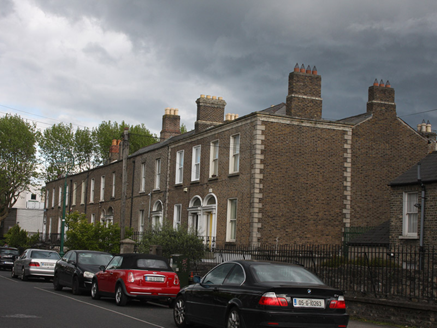Survey Data
Reg No
50110368
Rating
Regional
Categories of Special Interest
Architectural, Artistic, Historical
Original Use
House
In Use As
House
Date
1845 - 1865
Coordinates
315452, 232888
Date Recorded
19/05/2017
Date Updated
--/--/--
Description
Terraced two-bay two-storey house over raised basement, built c. 1855. M-profile pitched roof, partly concealed behind parapet with cut granite coping. Brown brick chimneystacks having clay pots. Brown brick, laid in Flemish bond, to wall to front (north) elevation, cut granite plinth course over lined-and-ruled rendered basement wall. Square-headed window openings with granite sills, raised render reveals and one-over-one pane and two-over-two pane timber sliding sash windows. Elliptical-headed door opening to front, having moulded render surround. Stucco doorcase comprising fluted columns supporting moulded cornice, plain fanlight, timber panelled door. Nosed granite steps with cast-iron boot-scrape to platform, flanked by cast-iron railings on granite plinth walls. Square-headed door opening to basement. Polychrome clay tiles to path, cast-iron gate and matching railings on granite plinth walls fronting house.
Appraisal
A well proportioned house retaining elegant classically-influenced features, such as the fine doorcase. The raised basement and wide steps leading to the front door add grandeur to the building and to the streetscape. The decorative cast-iron railings are of artistic as well as technical interest. Two participants in the 1916 Rising, J. Donegan and L. Marie, were resident at this address and were among a number of people imprisoned in Britain. As the street developed, this house became part of a terrace of similarly scaled and detailed houses. With the expansion of the city, the development of suburban residential areas such as Grantham Street provided housing for the growing middle class.





